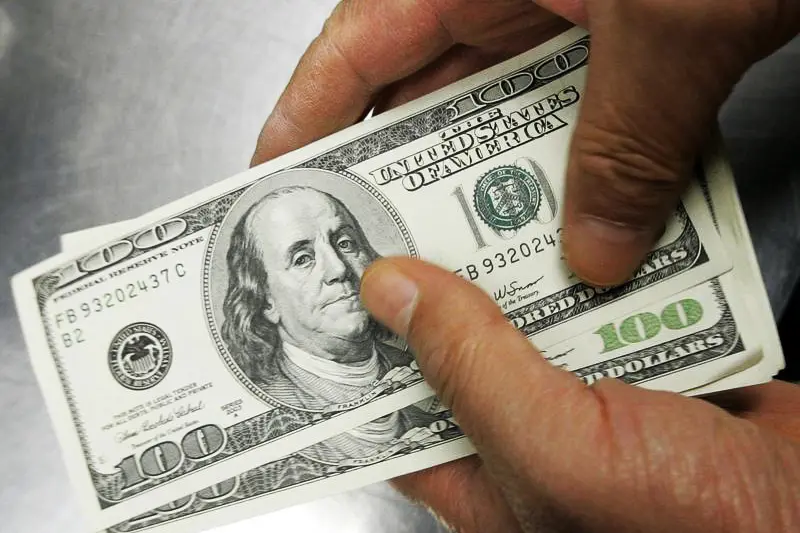PHOTO
The dollar held onto strong overnight gains on Friday, buoyed by hawkish Federal Reserve speakers and as investors looked to a key jobs report later in the day for clues on how much further U.S. rates would need to rise.
Against the Japanese yen, the rising greenback broke through the key 145 level again overnight, and hovered near that level in Asia trade. Meanwhile, the pound and euro nursed losses after sharp falls overnight.
Sterling was up 0.09% at $1.1170, having fallen 1.4% overnight. It rebounded to a high of $1.1493 earlier in the week, after the British government reversed its planned cut to the highest rate of income tax.
The euro gained 0.09% to $0.98015, after two unsuccessful attempts to regain parity this week.
Overnight, a slew of Fed officials reinforced the view that the central bank is nowhere near done with its hiking cycle as it seeks to bring down inflation, and that rates are expected to go up further.
"The rhetoric coming from Fed speakers has been very clear in terms of this hawkish message," said Rodrigo Catril, a currency strategist at National Australia Bank.
"That certainly reasserted the argument that not only does the Fed remain very much committed to keeping its foot on the tightening pedal, whilst at the same time, you look at economic data, and still the U.S. looks in a much stronger place than others."
The U.S. dollar index firmed to 112.22, after rising nearly 1% overnight, moving away from a low of 110.05 hit earlier in the week.
All eyes now turn to the U.S. nonfarm payrolls report due later on Friday, with economists forecasting 250,000 jobs to have been added last month, compared with 315,000 in August.
The yen last bought 145.02 per dollar, close to its 24-year low of 145.90 hit last month which prompted an intervention by Japanese authorities to shore up the fragile currency.
"We've been long arguing that an intervention is not an effective way of changing the trend in the currency ... our sense is that the trigger for a new intervention will be a sudden drastic weakening of the yen," said Catril.
The antipodean currencies were likewise pinned near their multi-year lows, with the Aussie down 0.06% at $0.6407, after sliding 1.2% overnight, while the kiwi traded 0.09% lower at $0.5650, having fallen 1.6% overnight.
But the kiwi was still on track for its first weekly gain since August, having seen some support from a similarly hawkish Reserve Bank of New Zealand after it lifted its official cash rate by a widely-expected 50 basis points on Wednesday, and promised more to come.
In another sign that major central banks' fight against inflation is far from over, accounts from the European Central Bank's September meeting show policymakers appeared increasingly worried that high inflation could become entrenched, making aggressive policy tightening necessary even at the cost of weaker growth.
(Reporting by Rae Wee; Editing by Shri Navaratnam and Ana Nicolaci da Costa)





















